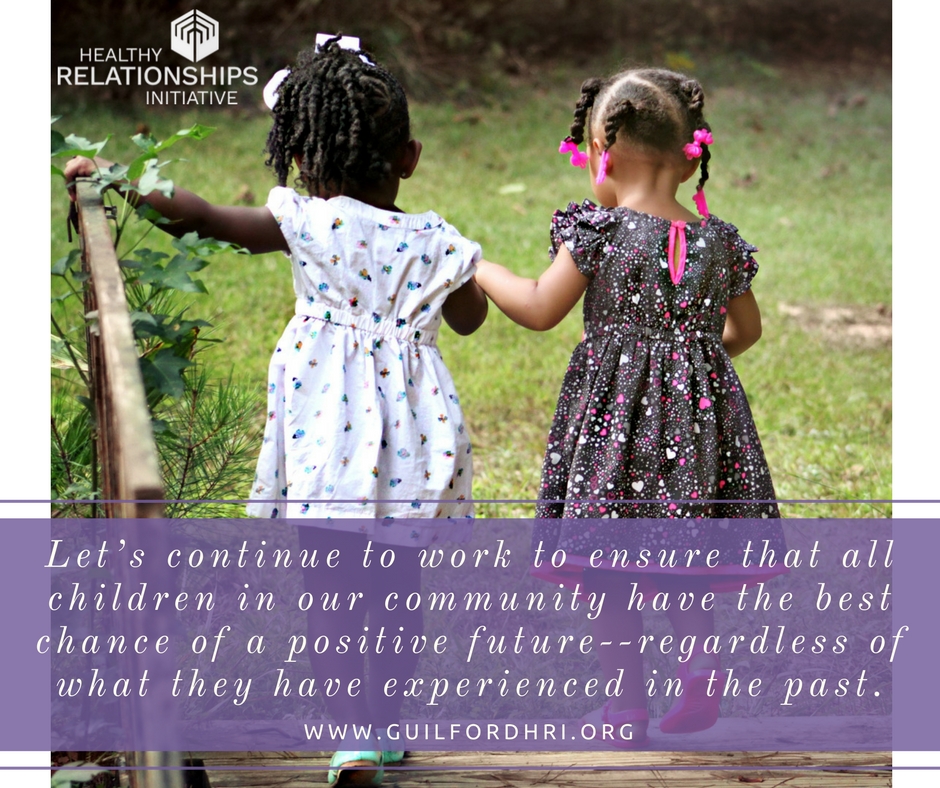
By Christine Murray, HRI Director
The American Psychological Association defines resilience as “the process of adapting well in the face of adversity, trauma, tragedy, threats or significant sources of stress…It means ‘bouncing back’ from difficult experiences.” The concept of resilience reminds us that people who go through very difficult life experience aren’t necessarily hurt forever because of those experiences.
This reminder is especially important when we consider the experiences of children who have been impacted by domestic violence and other forms of abuse, as we’re doing throughout this month at HRI in recognition of Domestic Violence Awareness Month. One of the most harmful myths surrounding domestic violence is that children who experience domestic violence will grow up to become victims or perpetrators themselves as adults. This erroneous assumption is hurtful to children because it can limit their hope for their futures.
Children who have gone through traumatic experiences like witnessing violence in their homes can go on to live positive, fulfilling lives that are full of healthy, nonviolent relationships. However, they need support and resources from their social networks and communities to help them overcome their experiences.
Based on my research, teaching, and counseling work with survivors of past abuse, I believe there are four key things that communities can do to ensure that children who experience domestic violence have the best chance at a bright future:
- First, prevention programs are valuable for providing information and resources that can foster healthy relationships and families that are free from violence. Ideally, violence and abuse would never occur in the first place. This vision for a world free of abuse is likely to take generations to achieve, but in the meantime, it’s important for communities to support preventive interventions and healthy relationship education. When more people learn how to build and maintain healthy, safe relationships, more children have opportunities to experience safety in their homes and families.
- Second, raising awareness about domestic violence and its impacts on children is critical for ensuring that a community is equipped to support children who experience this form of abuse. Domestic violence can come in many forms, so it can be difficult to recognize, especially if abuse doesn’t fit commonly-held beliefs about what it is. Domestic violence is not just about black eyes–it can be emotional, psychological, sexual, and financial, as well as physical. When people don’t know how to recognize domestic violence, it can occur right before their eyes. Without recognition, it can go on for a lot longer and become more severe, leading to more serious consequences for child and adult survivors.
- Third, when domestic violence and other forms of abuse occur, it is important to help children receive supportive interventions as soon as possible. This includes interventions that support the safety and well-being for their non-offending caregivers. The quicker safety and stability can be achieved, the less time there is for more secondary consequences to occur. Professionals who are trained to provide competent, caring services to children and their families during times of crisis are essential to helping children recover and thrive following traumatic events.
- Fourth, long-term supports help to ensure the well-being of children over time. Even long after the initial crisis of the trauma is involved, children can be impacted in different areas of their lives, such as school, friendships, and their physical and emotional health. After a child’s immediate safety has been secured, it is important to surround them with the supports needed for them to continue to grow and develop in positive ways. This may include counseling, mentoring programs, enrichment opportunities, and social support within their schools and neighborhoods.
I have been fortunate through my work to have met many people who experienced very difficult circumstances in their lives and shown resilience in the face of some of life’s darkest times. Resilience is a personal quality that can be strengthened with adequate support from one’s community. Even as Domestic Violence Awareness Month ends today, let’s continue to work to ensure that all children in our community have the best chance of a positive future–regardless of what they have experienced in the past.
